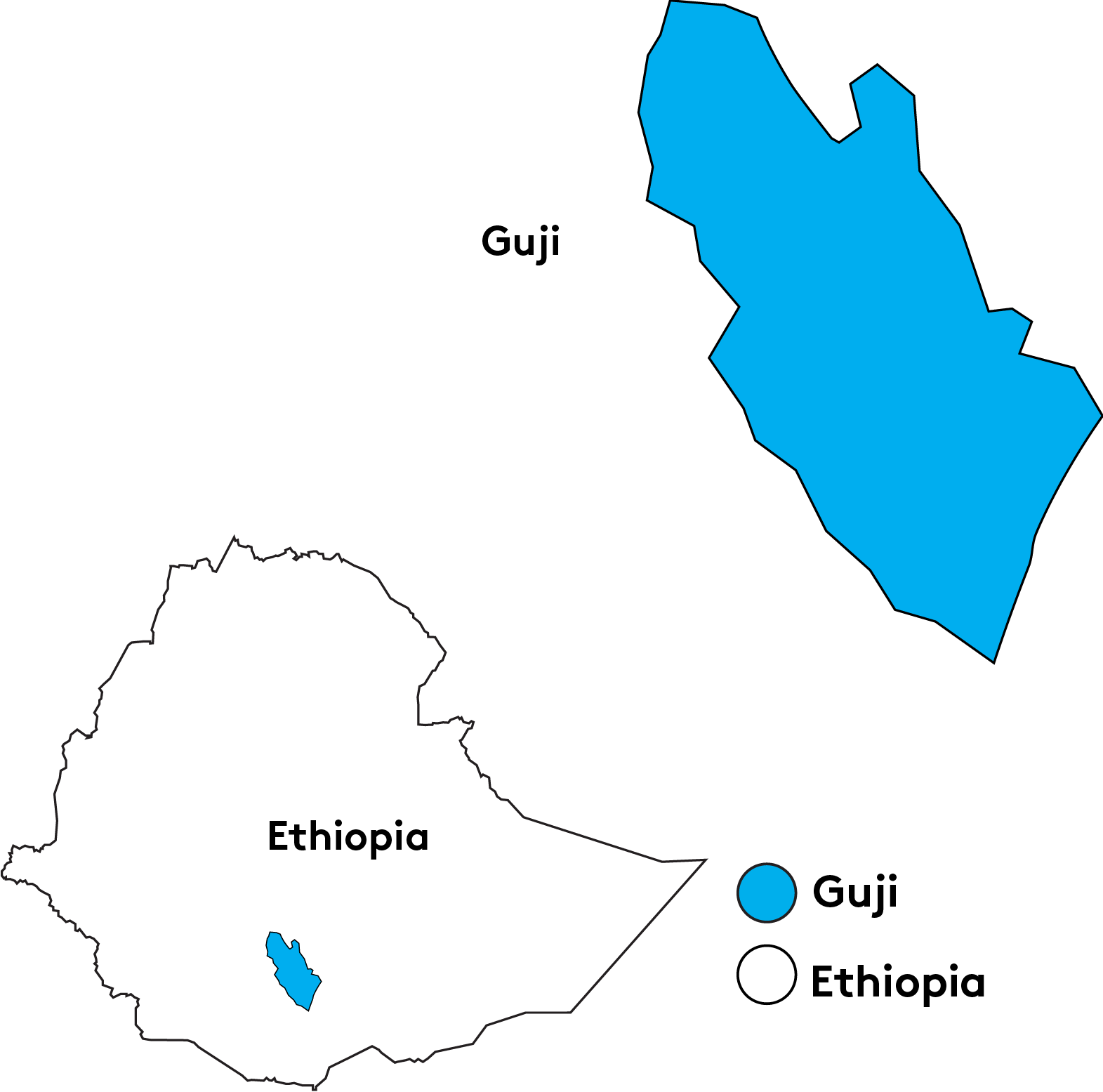This coffee was produced by smallholder producers living near the Buku Sayisa washing station in the Buku kebele of the Hambela Wamena woreda in Ethiopia’s Guji zone. Ripe cherries were delivered by 450 producers to the washing station, which is operated by Negusse Debela’s SNAP Specialty Coffee.
Local farmers grow landrace and locally selected varieties. Cherries are manually harvested before being delivered to the washing station. This lot underwent Washed processing. Freshly harvested cherries were sorted before being pulped with a disk pulping machine. The pulped coffee was then floated to remove defective coffee, and the remainder was fermented in the water tank for 36–72 hours. The fermented coffee was then dried on raised beds for 7–10 days.
This coffee was sourced from SNAP Specialty Coffee. SNAP was established in 2008 by Negusse Debela in Ethiopia’s capital, Addis Ababa. The company operates three washing stations in the Gedeo zone, and are partnered with additional washing stations in Guji and West Arsi. We began our partnership with SNAP in 2022.
As the coffee industry continues to grow in Ethiopia, the country’s historic growing areas don’t always match up with the current-day maps defining Ethiopia’s geography. Our goal is to provide the clearest and most accurate information about the coffees that we offer, and we’re proud to provide the most specific location information we have for these coffees. Learn more about Ethiopia’s coffee growing regions on our blog.
Region: Oromia
Zone: Guji
Woreda: Hambela Wamena
Kebele: Buku
ECX Growing Area: Guji
